Category: The Future of Home Security: Innovative Technologies to Watch
The Future of Home Security: Innovative Technologies to Watch
Introduction
Welcome to the cutting-edge exploration of home security, where technology is transforming our homes into fortresses of protection. In an era defined by rapid technological advancements, the future of home security promises to be smarter, more connected, and highly personalized. This comprehensive article delves into the innovative technologies that are reshaping the way we safeguard our living spaces. We’ll navigate through the historical evolution, global trends, economic implications, and the myriad technological breakthroughs that are paving the way for a revolutionary change in home security systems worldwide. Get ready to discover how these advancements will not only make homes safer but also enhance convenience, peace of mind, and overall quality of life for homeowners.
Understanding The Future of Home Security: Innovative Technologies to Watch
Definition and Core Components
“The Future of Home Security: Innovative Technologies to Watch” refers to the collective evolution of home security systems, leveraging advanced technologies to create smarter, more responsive, and efficient protection for residential properties. This concept encompasses a wide range of interconnected devices, software, and automation that work in harmony to monitor, protect, and manage homes.
The core components include:
- Smart Sensors: Motion detectors, glass break sensors, door/window contact sensors, and smoke/carbon monoxide detectors that can be remotely monitored and controlled via mobile apps.
- Internet of Things (IoT) Devices: A network of connected devices like cameras, smart locks, thermostats, and lighting systems that communicate with each other and central control units.
- Artificial Intelligence (AI) and Machine Learning: Algorithms for data analysis, pattern recognition, predictive analytics, and automated decision-making to enhance security and efficiency.
- Cloud Integration: Secure cloud platforms for data storage, remote access, and centralized management of security systems.
- Automated Response Systems: Mechanisms for automatic lock changes, alarm triggering, and emergency notifications upon unauthorized entry or detected hazards.
Historical Context and Significance
Home security has come a long way from the days of simple locks and alarms. The introduction of smart technology in the late 20th century marked a significant shift, enabling homeowners to monitor their properties remotely and respond to potential threats more efficiently. Over time, these systems have evolved from isolated components to integrated networks, driven by advancements in IoT, AI, and cloud computing.
The significance of this evolution lies in several factors:
- Enhanced Safety: With real-time monitoring and automated responses, homes can be secured more effectively against burglaries, intrusions, and emergencies.
- Convenience and Remote Access: Homeowners can manage their security systems from anywhere via mobile devices, providing unparalleled convenience and peace of mind.
- Data-Driven Insights: AI-powered analytics offer valuable insights into home activity patterns, helping to optimize security measures and reduce false alarms.
- Efficient Resource Management: Smart home security systems can integrate with other smart devices to optimize energy use, water consumption, and overall home automation.
Global Impact and Trends
The global home security market is experiencing a rapid transformation, driven by increasing internet penetration, rising crime rates in urban areas, and growing concerns about personal safety. Different regions are embracing these technologies at varying speeds, creating a diverse landscape of opportunities and challenges.
Key Trends:
- Regional Disparities: Developed countries like the U.S., Canada, and parts of Europe have higher adoption rates due to advanced infrastructure and tech-savvy populations. Emerging markets in Asia and Latin America are catching up quickly, driven by increasing disposable incomes and growing urban populations.
- Cloud Security Dominance: The shift towards cloud-based security systems is gaining momentum globally, offering scalability, remote access, and cost-effectiveness.
- AI Integration: AI-powered analytics and automated response systems are becoming industry standards, enabling more intelligent and proactive security measures.
- Smart Home Ecosystem: As homes become increasingly interconnected, security systems are evolving to integrate with other smart devices for holistic home automation.
Economic Considerations
The economic aspects of “The Future of Home Security” paint a vibrant picture, with significant market growth potential and attractive investment opportunities.
Market Dynamics:
- Global Market Size: The global home security market was valued at USD 175.4 billion in 2020 and is projected to grow at a CAGR of 8.6% from 2021 to 2028 (Source: Grand View Research).
- Segmentation: The market can be segmented by product type, end-use, and region. Key segments include security cameras, alarm systems, access control devices, and smart locks.
- End-Use Industries: Residential applications dominate the market, but commercial and industrial sectors are also experiencing growth due to increasing safety concerns.
Investment Patterns:
- Venture Capital (VC) Interest: Startups focusing on AI, IoT, and cloud security solutions have attracted significant VC funding, fueling innovation in the space.
- Corporate Investments: Established tech companies and security giants are investing heavily in R&D to develop next-generation home security technologies.
- Government Initiatives: Many countries are promoting smart city initiatives, which include investments in advanced security systems for residential and public spaces.
Technological Advancements
The heart of “The Future of Home Security” lies in the incredible technological advancements that drive its capabilities. Let’s explore some of these breakthroughs:
1. Artificial Intelligence (AI) and Machine Learning:
- Behavioral Analysis: AI algorithms can learn and recognize patterns of normal behavior, minimizing false alarms while detecting unusual activities.
- Predictive Analytics: By analyzing historical data, AI models can predict potential security threats, enabling proactive response measures.
- Voice Assistants: Integrating AI-powered voice assistants like Alexa or Google Assistant enhances convenience, allowing homeowners to manage security with simple voice commands.
2. Internet of Things (IoT) and Networked Devices:
- Smart Cameras: High-definition cameras with advanced analytics capabilities provide comprehensive coverage, day and night, with motion detection and face recognition.
- Connected Locks: Smart locks offer remote access control, biometric authentication, and automated lock changes based on user preferences or location-based triggers.
- Mesh Network Technology: This technology enables seamless communication between devices, ensuring robust signal strength even in large homes or multi-story buildings.
3. Cloud Computing:
- Secure Data Storage: Cloud platforms provide secure data storage for security system logs, allowing easy access and remote management by homeowners and security professionals.
- Remote Monitoring: Homeowners can remotely monitor their properties, receive alerts, and control security devices from anywhere using mobile apps.
- Scalability and Flexibility: Cloud-based systems can scale up or down based on user needs, offering flexible and cost-effective solutions.
4. Biometric Authentication:
- Fingerprint and Facial Recognition: Beyond traditional passwords, biometric authentication adds an extra layer of security, ensuring that only authorized individuals can access homes.
- Vein Recognition: Advanced biometric systems are exploring vein patterns in fingertips for secure and unique user identification.
Policy and Regulation
The development and deployment of innovative home security technologies are guided and influenced by various policies and regulations worldwide. These frameworks play a crucial role in ensuring consumer privacy, data protection, and ethical practices:
- Data Privacy Laws: Regulations like the General Data Protection Regulation (GDPR) in Europe and California’s Consumer Privacy Act (CCPA) set guidelines for collecting, storing, and using personal data, including security system logs.
- Cybersecurity Standards: Organizations such as the National Institute of Standards and Technology (NIST) provide cybersecurity frameworks to protect against cyber threats, ensuring secure communication protocols for smart home devices.
- Product Safety Regulations: Authorities like UL (Underwriters Laboratories) set safety standards for electronic security products, ensuring their reliability and performance.
- Export Controls: For technologies with dual-use applications, export regulations control the transfer of sensitive technology to maintain national security.
Challenges and Criticisms
Despite its immense potential, “The Future of Home Security” faces several challenges and criticisms that must be addressed for widespread adoption:
Key Challenges:
- Interoperability: Ensuring that various smart home devices from different manufacturers can communicate seamlessly is a significant hurdle. Standardization efforts are crucial to achieving this.
- Cybersecurity: As more devices connect to the internet, the attack surface for hackers expands. Robust cybersecurity measures must be implemented to protect user data and system integrity.
- Privacy Concerns: The collection and storage of vast amounts of personal data raise privacy concerns. Clear guidelines and transparent practices are essential to gaining consumer trust.
- Cost and Accessibility: While these technologies offer advanced protection, they can be expensive, creating a digital divide. Making them more affordable and accessible is vital for widespread adoption.
Proposed Solutions:
- Industry Collaboration: Manufacturers should collaborate on developing open standards for interoperability, ensuring easier integration of devices from different brands.
- Enhanced Cybersecurity Measures: Implement end-to-end encryption, regular security audits, and over-the-air updates to fortify against cyber threats.
- Transparent Data Handling: Develop clear privacy policies and provide users with granular control over their data, ensuring informed consent for data collection.
- Government Initiatives: Offer incentives or subsidies to make smart home security systems more affordable for low-to-middle-income families.
Case Studies: Successful Implementations
Real-world applications of innovative home security technologies have led to remarkable success stories, demonstrating the transformative power of these solutions:
1. Smart City Security in Singapore:
Singapore’s Smart Nation initiative includes a sophisticated security system for its residential and commercial spaces. The government has deployed AI-powered cameras with facial recognition technology to detect and prevent crime. This integrated system communicates with smart locks and alarms, providing a comprehensive security network. The results have been promising, with a significant reduction in crime rates and improved public safety.
2. Residential Community Protection:
In a suburban neighborhood, a group of homeowners collaborated to install a community-wide security system. Using mesh network technology, they created a connected network of cameras, sensors, and smart locks. This unified system allows residents to monitor their streets, receive alerts for suspicious activities, and remotely control access to common areas, fostering a safer and more connected community.
3. Hospitality Industry Security Upgrade:
A renowned hotel chain invested in advanced security systems to enhance guest safety and privacy. They implemented biometric check-in, ensuring secure and seamless entry. AI-powered cameras with object recognition detected any unusual behavior or potential security threats, triggering immediate responses. This integration of smart locks, biometric authentication, and AI surveillance set a new standard for hospitality security.
Future Prospects: Growth Areas and Emerging Trends
The future holds immense potential for “The Future of Home Security,” with several growth areas and emerging trends on the horizon:
Potential Growth Areas:
- Automated Home Safety: Expect further integration of AI and IoT to create fully automated homes, where security systems adapt to user behavior and environmental changes.
- Health and Wellness Monitoring: Smart home devices will evolve to monitor not just safety but also health and wellness, detecting falls or unusual activity that may indicate medical emergencies.
- Energy Efficiency: With rising environmental concerns, smart security systems will be integrated with home energy management, optimizing resource use and reducing carbon footprints.
Emerging Trends:
- 5G Technology: The rollout of 5G networks will significantly enhance the performance and responsiveness of IoT devices, enabling faster data transfer and more reliable communication for real-time monitoring.
- Quantum Encryption: To counter cyber threats, quantum encryption technologies are being developed to ensure secure data transmission and protect sensitive security system information.
- Blockchain Integration: Blockchain technology can provide secure and transparent data storage, ensuring the integrity of security system logs and facilitating safer transactions between users and service providers.
- Smart Home as a Service (SHaaS): Similar to Software as a Service (SaaS), SHaaS models will offer subscription-based access to advanced home security systems, making these technologies more accessible.
Conclusion: Securing the Homes of Tomorrow
As we look ahead, “The Future of Home Security: Innovative Technologies to Watch” presents a captivating journey of technological evolution and its profound impact on our lives. These advancements promise to transform homes into safe havens, offering unparalleled peace of mind and convenience. From AI-driven analytics to interconnected IoT devices, the future holds immense potential for safer, smarter, and more efficient home security systems.
By addressing challenges, embracing global collaborations, and staying abreast of technological breakthroughs, we can ensure that these innovations benefit homeowners worldwide. As we navigate this exciting era, one thing is clear: the future of home security is here, and it’s smarter than ever.
FAQ Section
Q: How does AI improve home security?
A: AI enhances home security through advanced analytics, pattern recognition, and predictive modeling. It can learn normal behaviors, detect unusual activities, and automate responses, significantly improving the efficiency and effectiveness of security systems.
Q: What are the main considerations for implementing a smart home security system?
A: Key considerations include interoperability between devices, cybersecurity to protect user data, privacy regulations, cost-effectiveness, and ease of use. It’s essential to choose reputable manufacturers and ensure compatibility with existing home networks.
Q: Can smart locks replace traditional keys entirely?
A: While smart locks offer numerous advantages, they may not fully replace traditional keys. Keys still serve as physical backups, ensuring access during power outages or system failures, and they remain crucial for emergency situations.
Q: How does cloud computing contribute to home security?
A: Cloud computing enables secure data storage, remote monitoring, and centralized management of security systems. It allows homeowners and security professionals to access and control security devices from anywhere, enhancing convenience and response times.
Q: What are the potential risks associated with biometric authentication?
A: While biometric authentication adds an extra layer of security, there are concerns about data privacy and storage. Biometric data should be handled securely, and users must be aware of the potential consequences if this data is compromised.
Securing Your Home: Embracing Innovative Tech for Peaceful Living
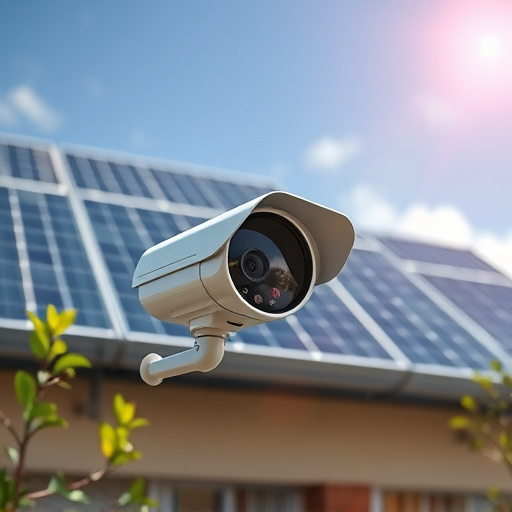
Experience unparalleled peace of mind with innovative security technologies that transform your home…….
Securing Peace: Future-Ready Home Security Innovations for Smart Living
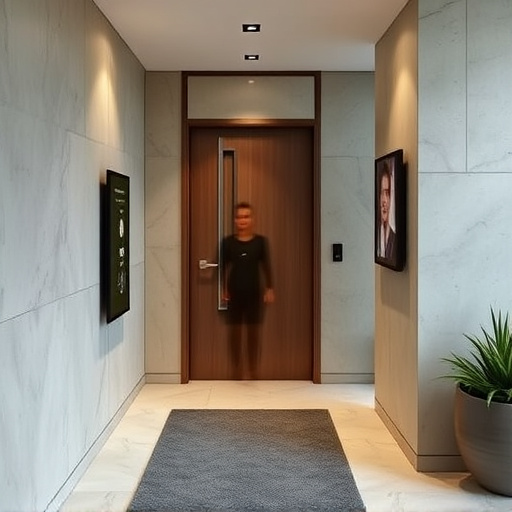
Step into a new era of home security where technology becomes your closest ally, offering unparallel…….
Future Security Trends: Unlocking Peace of Mind with Smart Home Protection
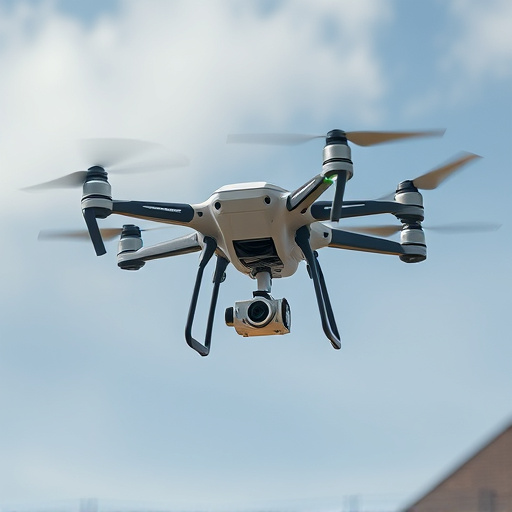
Step into a future where home security becomes an effortless and seamless part of your smart living…….
Secure Your Haven: Unlocking Peace with Innovative Security Tech

Experience the ultimate in innovative security technologies that transform your home into a safe hav…….
Secure Your Sanctuary: Unlocking Peace with Cutting-Edge Home Protection
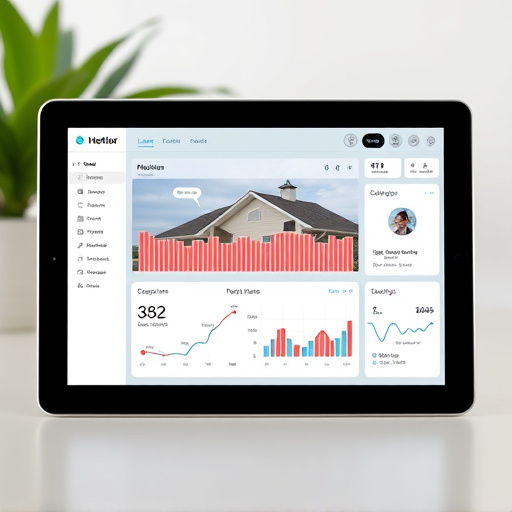
Experience unparalleled peace of mind with cutting-edge security solutions that transform your home…….
Embrace Peaceful Living: Unlocking Tomorrow’s Home Protection Today
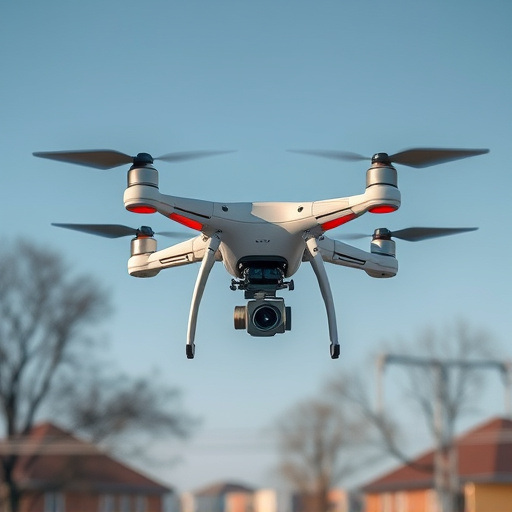
Step into a future where your home becomes an extension of your peace of mind. Emerging Home Protect…….
Empower Your Home, Secure Your Peace: Unlocking the Future with Innovative Security Technologies
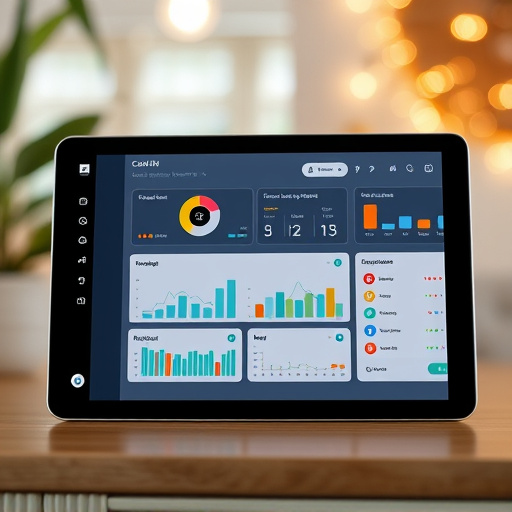
Experience unparalleled peace of mind with innovative security technologies that transform your home…….
Empowering Peace of Mind: The Future of Smart Home Security

Step into the future of home security and transform your living space into a sanctuary of peace and…….
Securing Your Haven: Future-Forward Tech for Home Protection Peace

Emerging Home Protection transforms your living space into a secure sanctuary, seamlessly integratin…….
